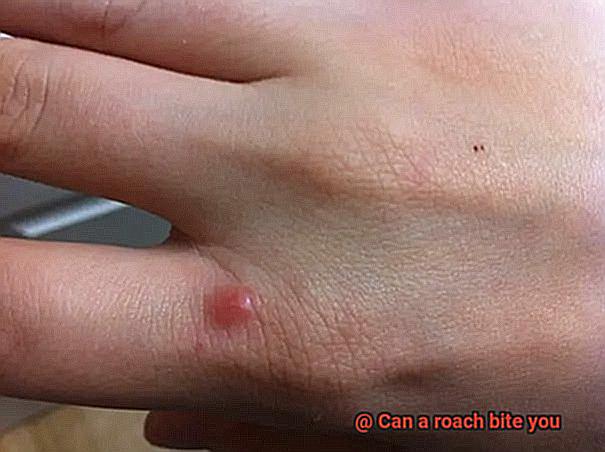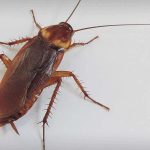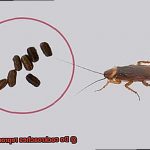Are you one of those people who dread the thought of roaches crawling on you while you sleep? It’s a common fear, and for good reason. These creepy critters can invade our personal space and leave us feeling uneasy. But here’s the burning question: can a roach actually bite you? The answer is yes, but it’s not as simple as that.
Cockroaches, or simply roaches, are not typically known for their biting habits. They’re more likely to scavenge and feast on whatever they can find in your home, such as crumbs or food waste. However, some species of roaches may resort to biting humans in rare cases, either in search of a meal or out of aggression.
In this blog post, we’ll delve into the types of roaches that can bite, the symptoms that come with a roach bite, and how to prevent them from sinking their teeth into you. Whether or not you have a phobia of these pesky pests, it’s crucial to know how to protect yourself from potential infestations and the dangers they may bring. So let’s dive deep into the truth behind these sneaky insects and their biting tendencies.
What are Cockroaches?
Contents
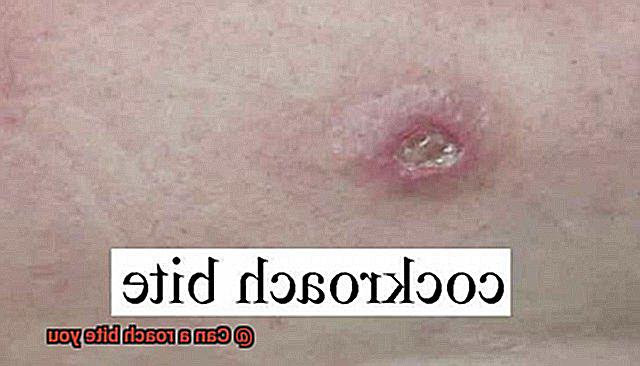
Cockroaches, these pesky critters that scurry across our kitchen floors, are insects that belong to the family of Blattodea. With over 4,500 species worldwide, only a few of them are considered pests. These repulsive insects are commonly found in warm and humid environments such as kitchens, bathrooms, and basements.
Cockroaches have a flat and oval-shaped body that ranges from 0.12 to 3 inches in length, depending on the species. Their long antennae and six legs are designed for fast movement. Their bodies are covered with a hard exoskeleton, which protects them from predators and environmental hazards.
Most species of cockroaches are nocturnal, meaning they are active at night and rest during the day. They’re omnivorous and feed on both plant and animal materials. What’s more, cockroaches can survive without food for up to a month and without water for a whole week.
These creepy crawlies have a reputation for being dirty and spreading diseases. They can pick up germs and bacteria from their environment and transfer them to food and surfaces they come into contact with. Unfortunately, cockroaches can also trigger allergies and asthma in some people due to their feces, saliva, and shed skin.
But can cockroaches bite humans? Yes. Though it’s rare for a cockroach to bite humans, it can happen when the infestation is severe. Although their bites aren’t harmful, they can cause discomfort and irritation.
Can Cockroaches Bite Humans?
That’s right, while not common, these creepy crawlies are capable of biting humans when they are under extreme stress or feel threatened. In some cases, they may even mistake humans for food.
But don’t fret too much – the good news is that cockroach bites are usually harmless and appear as small, red bumps on the skin. While they may cause mild itching or pain, serious medical attention is rarely required. However, in rare cases, they can lead to an allergic reaction or infection.
It’s important to keep in mind that while cockroaches can carry bacteria on their bodies and in their feces which can contaminate food and surfaces in your home, the risk of contracting an illness from a cockroach bite is relatively low.
To prevent cockroach bites, it’s essential to keep your home clean and free of clutter. Cockroaches thrive in dirty environments and are more likely to bite when they feel stressed or threatened. So, if you do have a cockroach infestation in your home, it’s time to take action and call a professional pest control company to eliminate the problem for good.
How Do Cockroaches Bite?
These resilient pests are known for their ability to survive in different environments and for causing diseases. In this article, we will dive deeper into the fascinating world of cockroaches and explore how they bite and the potential risks associated with their bites.
Cockroaches have chewing mouthparts called mandibles that allow them to eat a wide variety of food items. Although they don’t have teeth like us, their mandibles are strong enough to break through human skin. Typically, cockroach bites are accidental and occur when they’re searching for food or shelter. However, not all species of cockroaches bite humans, and some are more likely to do so than others.
So what happens when a cockroach bites you? Generally, the bites are harmless and only result in small red bumps on the skin. However, some people may experience an allergic reaction to the bite, which can be more severe. If you’re sensitive to insect bites and develop symptoms like swelling, itching, or difficulty breathing after being bitten by a cockroach, seek medical attention immediately.
It’s important to note that while cockroach bites themselves aren’t dangerous, these pests can carry bacteria that can contaminate food and surfaces in your home. This can lead to illnesses such as salmonella and E. coli. Additionally, cockroach infestations can cause respiratory problems in some individuals, especially those with asthma.
To prevent cockroach bites and other health risks associated with these pests, it’s essential to take steps to prevent infestations in your home. Keep your home clean and clutter-free, seal up any cracks or crevices where cockroaches may enter, and call in professional pest control if you suspect an infestation.
What Does a Cockroach Bite Look Like?
Although it’s not very common, it’s still important to know what a cockroach bite looks like and how to distinguish it from other insect bites. Cockroach bites appear as small red bumps, which can easily be mistaken for mosquito bites or other insect bites. What sets them apart is that they often leave a distinctive pattern of multiple bites in a row.
Cockroaches tend to bite areas that are exposed while you sleep, such as your face, arms, and legs. If you suspect that you have been bitten by a cockroach, keep an eye on the affected area and seek medical attention if you experience any unusual symptoms or severe reactions.
Although cockroach bites are not usually dangerous, they can cause skin irritation and itching. To prevent cockroach bites, it’s important to keep your home clean and free of these pesky critters. Cockroaches are attracted to food and moisture, so be sure to clean up spills and crumbs promptly and fix any leaky pipes or faucets in your home. Using bug spray or hiring a professional exterminator can also help control a severe infestation.
Are Cockroach Bites Dangerous?
While cockroach bites are not a common occurrence, they do happen. However, the good news is that these bites are typically not dangerous or harmful to humans.
Cockroaches are omnivorous creatures that feed on a wide range of foods, including decaying matter, plants, and even other insects. They do not have venom or any other harmful substances in their saliva that could cause severe allergies or infections. This means that in most cases, cockroach bites are simply a nuisance and may result in mild irritation or itching.
It’s important to avoid scratching the bite too much, as this can cause an infection, which may lead to more severe complications. While cockroach bites themselves may not be dangerous, it’s worth noting that these pests can carry harmful bacteria and pathogens on their bodies. If the cockroach has been in contact with unsanitary environments or contaminated food sources, they can transfer these harmful substances to humans through their bites.
To prevent any potential harm caused by cockroach bites, it’s crucial to take precautions and keep your living spaces clean and hygienic. Cockroaches are known for carrying harmful bacteria and pathogens on their bodies, making it essential to avoid contact with these pests entirely.
How to Prevent and Get Rid of an Infestation
Cockroaches are one of the most unwelcome guests in any home. They’re gross, they carry diseases, and they’re nearly impossible to get rid of once they’ve taken up residence. But fear not. With a few preventative measures and some know-how, you can keep these creepy crawlies out of your home for good.
Clean Up Your Act
The first step in preventing a roach infestation is to keep your home clean and tidy. Roaches love cluttered, dirty environments, so make sure to vacuum and mop regularly, especially in the kitchen and bathroom. Wipe down countertops, sweep up crumbs, and wash dishes as soon as possible. Don’t forget to take out the trash frequently and store it in a sealed container.
In addition, make sure your home is well-ventilated and free from any sources of moisture. Fix any leaky pipes or faucets, and use a dehumidifier if necessary.
Seal the Deal
Roaches can enter your home through even the tiniest of openings. Seal up any cracks or gaps in walls, floors, and doors with caulk or weatherstripping. Install door sweeps on all your exterior doors, and use mesh screens on windows and vents.
Don’t forget to check for any openings around pipes or utility lines entering your home. These can be sealed up with foam insulation or other materials.
Cut Off Their Food Supply
Roaches are attracted to food and water sources, so make sure to store food in sealed containers and keep your kitchen clean. Fix any leaky pipes or faucets, and don’t leave standing water in sinks or bathtubs. Avoid leaving pet food out overnight and clean up any spills or crumbs immediately.
In addition, try to keep clutter to a minimum. This will not only make it more difficult for roaches to find hiding spots, but it will also make cleaning easier.
Use Baits and Traps
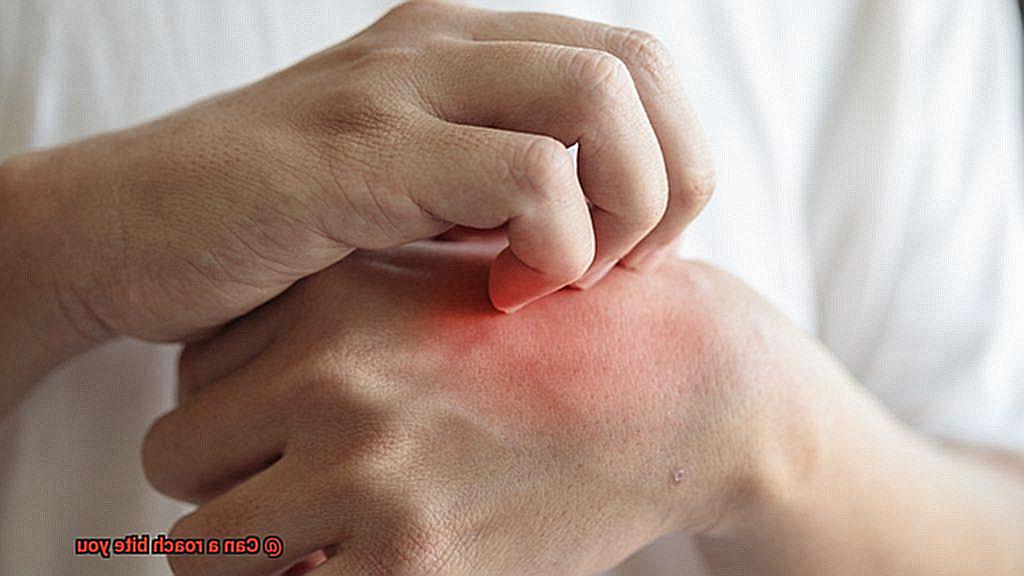
If you already have a roach infestation, bait stations or traps can be an effective way to get rid of them. These work by luring roaches with a food-based lure and then trapping them inside. You can buy these at most hardware stores or online.
Make sure to place these in areas where roaches are likely to travel, such as under sinks or in corners. Also, be sure to check and replace them regularly.
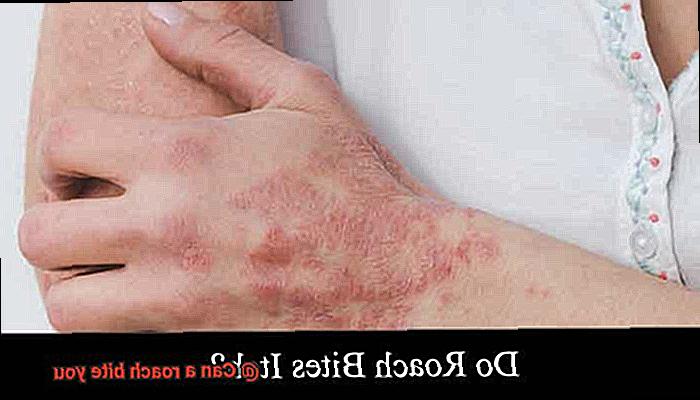
Call in the Pros
If all else fails, it may be time to call in the professionals. Pest control companies can provide more comprehensive treatments for roach infestations, such as fumigation or heat treatment. They can also provide guidance on preventative measures to keep roaches out of your home in the future.
B0r8wUOZuq4″ >
Conclusion
In conclusion, the answer to the question “Can a roach bite you?” is yes, although it’s not a common occurrence. While cockroaches are not known for their biting habits, some species may resort to biting humans in rare cases either in search of food or out of aggression. Typically, cockroach bites are harmless and appear as small red bumps on the skin that may cause mild itching or pain. However, they can lead to an allergic reaction or infection in rare cases.
To prevent cockroach bites and other health risks associated with these pests, it’s essential to take preventative measures against infestations in your home. Keeping your home clean and free of clutter is crucial because cockroaches thrive in dirty environments and are more likely to bite when they feel stressed or threatened.
If you suspect a cockroach infestation in your home, it’s time to take action and call a professional pest control company to eliminate the problem for good. You can also use preventative measures such as sealing up any cracks or gaps in walls, floors, and doors with caulk or weatherstripping to keep these pesky critters out of your home.
So, while cockroach bites themselves may not be dangerous, these pests can carry harmful bacteria and pathogens on their bodies. Therefore, it’s crucial to avoid contact with them entirely by keeping your living spaces clean and hygienic.

